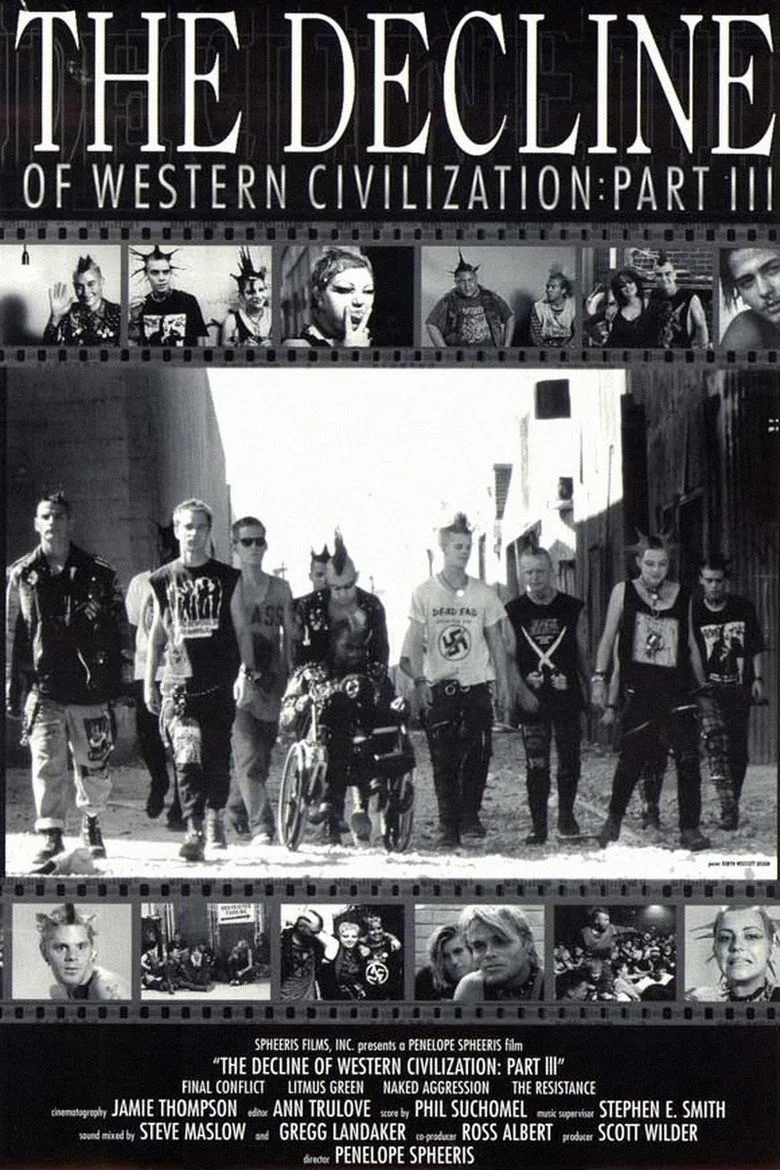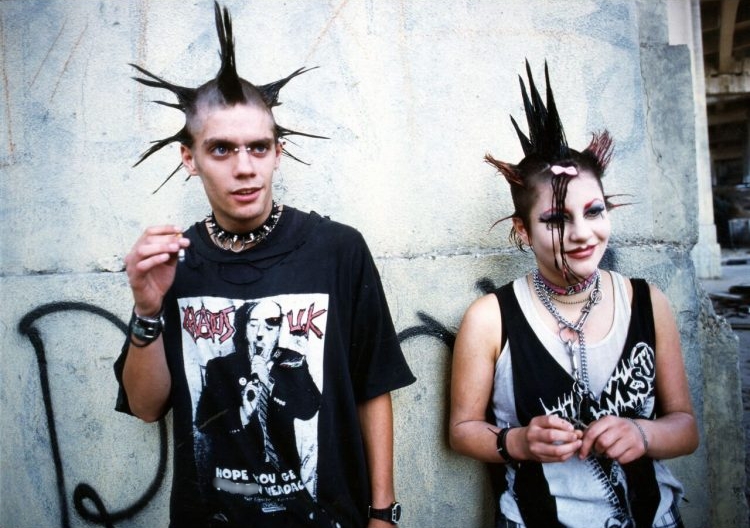Summary
A documentary following the lives of gutter punks in Los Angeles in the late nineties.
My Thoughts
Penelope Spheeris rounds out her Decline of Western Civilization trilogy with this in depth look at the lives of self-proclaimed ‘gutter punks,’ homeless punk rockers that squat in abandoned homes or sleep on the streets, panhandle or steal, and live lives of alcoholism and drug addiction. This is the roughest watch of the trilogy as it really strips away any glitz or glamour of the punk rock scene. Many of the people we get to meet are living at bottom of the bottle and have no want or hope of recovering; they’re happy with their lives on the streets, living for the next hit or drink. Most of the film follows around a certain group of punks that all reside around the same area, go to the same parties, and squat in the same houses. While the other two films in this series showed both sides of the rock and roll lifestyle- how it could both be something enjoyable and detrimental to one’s health- this movie focused primarily on the destructive results of the behavior. There are no happy endings when the credits roll of this film, and since the stories are true it makes it that much harder to watch.
“Where do you see yourself in five years?” “Dead.”
While the other two films primarily follow the bands around and watch their lives, this film focuses on the fans of the music. We get to meet and hear a few bands play, but there aren’t as many lengthy, in depth interviews with the members of each band. Most of the time when the bands were playing, Spheeris interviewed them for a few minutes, let them play for a song or two, and then brought us back to the gutter punks. The music, at least in this film, is only backdrop- a universal theme that ties all of the characters together. Really, the themes of hatred of authority, unrestrained anger, and general rebellion are the things that tie all of the people together. The people Spheeris examines are all incredibly interesting, though, and she has a way of showing us that many of these people came from similar backgrounds; abusive or oppressive parents, they started drinking or doing drugs too young, ended up in trouble with the law, got kicked out of school or home or both, and just wound up on the street, caring little for anything or anyone. A lot of the stories we hear are incredibly sad, and it makes you really empathize with these kids (a lot of them had been on the street for years, and many of them were still teenagers). At the same time, they refuse to take responsibility for their actions and they refuse to change. Spheeris herself seems to want to help these people turn their lives around. Again and again, she asks them, “Where do you see yourself in five years?,” and many of them respond that they’ll be in the same spot, still drinking and getting high. She often asks if they think that’s sad, and many of them just don’t seem to care enough to make an effort to change. It’s hard to watch broken people feel hopeless and spiral out of control, and there are some moments in this film that depict utter hopelessness.
I read that Spheeris said that out of the three “Decline films”, this one affected her the most, and it’s easy to see why. She was quoted in an interview with Cvltnation.com saying that it was very different (fair warning, there is language in that interview).
She says: “The Music was the same. The wardrobe was the same. The good ‘ol f***-it-all punk attitude was the same. But what happened when I began shooting “Decline III” is that I realized the times had drastically changed […] It wasn’t sex-drugs and rock n roll like in the “Metal Years”. It was hardcore survival.”
Many of the kids in this film just feel directionless, and had they any sort of guidance they probably could’ve made something of their lives. The only famous person I really recognized I this film was Flea (“The Big Lebowski”) (I know him as the bassist from Red Hot Chili Peppers); he talked for a while about his own personal experiences of living on couches during the early eighties, when the punk scene was first starting up, but he claimed that times had gotten harder for punk rockers since the scene was slowing dying out. The fact that life is hard for these kids never leaves your mind, and the finale of this film really shows how volatile and unstable the lives they lead were (or are- some of these people may still be doing the same thing, though I assume some of them are dead by now).
Verdict:
This isn’t as easy or as fun of a watch as the other decline movies, but it is just as important, if not more so. While the other films showed us a glimpses of the dark side of the punk world, this film throws us right in the fires with those who have little hope of escaping. It’s a harrowing look at a lifestyle many of us might drive by on our way to work everyday and never even think about. I would recommend this film much like I’d recommend the others in this trilogy, though I’d recommend preparing yourself for this one.
Like this movie? Then be sure to check out the other two movies in the trilogy. “The Decline of Western Civilization”, and “The Decline of Western Civilization Part II: The Metal Years”.
Review Written By:





